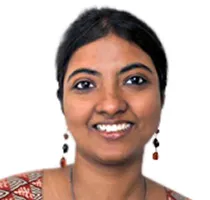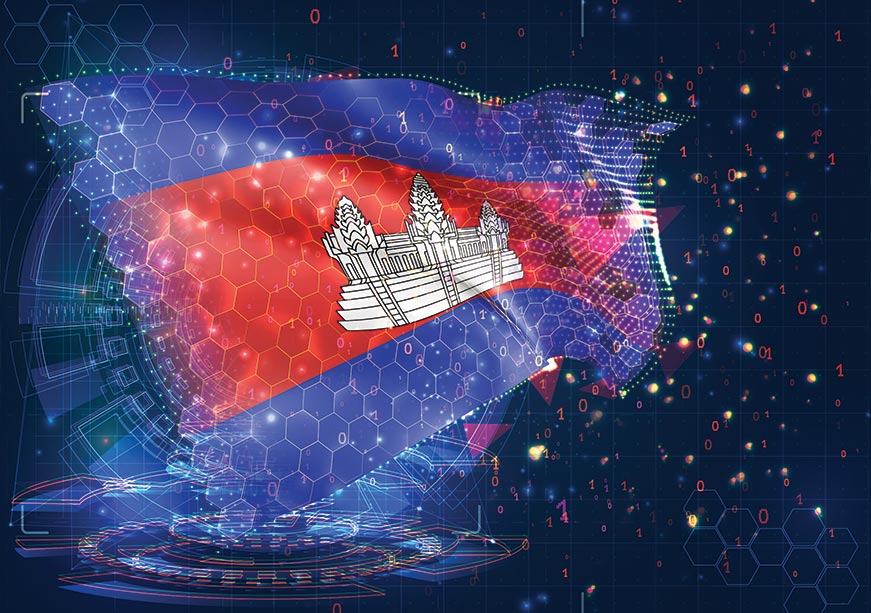
Africa’s population is likely to grow rapidly from its current value of about 1.4 billion people to 2.5 billion people in 2050. The continent is also often regarded as the ‘youngest continent’ because nearly 60 percent of its population is below 25 years of age. In an ageing world, Africa’s youthful population offers great opportunities for economic development. However, significant investments in education and skilling are required today to put its youthful population to good use. Keeping in mind Africa’s education and skills gap, the African Union has rightly selected education and skilling as the theme for the year 2024.
A snapshot of Africa’s education sector, sadly, does not present a fine picture. The COVID-19 pandemic has disrupted Africa’s already weak education sector due to sudden lockdowns and school closures. Thousands of children dropped out of school and there were significant learning losses. Currently, about 20 percent of primary-school-age children and 58 percent of upper-primary-school-age children in Sub-Saharan Africa are out of school. Out-of-school rate at primary school age is particularly high in countries like South Sudan (62 percent), Djibouti (42 percent), Sudan (41 percent), Eritrea (39 percent), Mali (38 percent), and Niger (36 percent).
The COVID-19 pandemic has disrupted Africa’s already weak education sector due to sudden lockdowns and school closures.
There are significant concerns about inequity in education as well. As per UNICEF estimates, children from the poorest quintile received less than 10 percent of the public spending on education. In countries like Mali, Guinea, and Chad, learners from the richest households receive 8.4, 7.9, and 6.8 times the amount of public spending on education than those from the poorest households. There are significant gender disparities in access to education because of the persistence of gender inequality in society. Although there are significant variations between countries, typically there are fewer girls in higher education and the drop-out rates for girls are higher at the secondary level.
In addition to access, quality of education is another area of critical concern as a high proportion of the children fail to acquire even basic reading and numeracy skills. For instance, less than 10% of the children in grades 2 and 3 acquire minimum competency in mathematics in countries like the Gambia, Ghana, Madagascar, Lesotho, and Sierra Leone. A recent International Monetary Fund (IMF) report suggests that much of Africa’s poor learning outcomes can be traced to the challenge of securing trained teachers in schools as teacher training rates have fallen steadily since 2000.
With shrinking government budgets due to high debt burdens, African governments will find it harder to attain the SDG 4 goal of providing universal access to quality education. According to IMF estimates, to meet the SDG objective of universal primary and secondary enrollment, public and private expenditures on education would need to double by 2030. Barring exceptions like South Africa which spends about 6.1 percent of its GDP on education, Sub-Saharan Africa’s public expenditure on education (3.2 percent) is lower than the world average of about 4 percent. On the other hand, despite the importance of education in a society’s well-being, the share of education in official development assistance (ODA) flows has remained low and stagnated over the years. Absolute education aid to least developed countries also declined by 10 percent during the pandemic from US$ 4.3 billion in 2019 to US$ 3.9 billion.
With shrinking government budgets due to high debt burdens, African governments will find it harder to attain the SDG 4 goal of providing universal access to quality education.
As Africa strives to educate and upskill its youth population while struggling with several challenges like poor growth prospects, high debt, shrinking budgets and lower aid flows, India can prove to be a good partner. Unlike other donor countries, India’s development partnership programme, built on the principles of shared prosperity, stressed education and capacity building since its inception in the 1950s. As a newly independent country, India understood the importance of investing in human resources and capacity building is featured as a prominent pillar of the country’s development cooperation programme. The Indian Technical and Economic Cooperation Programme (ITEC) was launched in 1964 and several scholarships were announced for students from developing countries. Education and capacity building has been an important pillar of India’s relations with Africa as Africans have been major beneficiaries of Indian scholarships and the ITEC programme. In African countries like Ethiopia, Indian teachers have also played a crucial role in the school education system.
Over the years, India’s capacity-building programme has expanded dramatically. India has supported huge IT projects like the PAN-African e-Network and its successor, e-VidyaBharati AarogyaBharati (e-VBAB). The flow of African students in India has also grown steadily. In his address to the Ugandan Parliament, Indian Prime Minister, Narendra Modi, highlighted India’s commitment to African development and said “We will rely on African talent and skills. We will build as much local capacity and create as many local opportunities as possible”. India is also building higher educational institutions like IIT Madras and National Forensic Sciences University in African countries. Apart from government-to-government initiatives, Indian non-profit institutions are also playing an important role in Africa. For instance, an Indian institution, Pratham’s teaching at the right level (TaRL) approach which emphasises teaching basic literacy and numeracy through fun activities targeted to the level of each child, helped improve learning outcomes in Zambia and Botswana.
The Indian Technical and Economic Cooperation Programme (ITEC) was launched in 1964 and several scholarships were announced for students from developing countries.
While India’s existing initiatives, particularly government-to-government initiatives are laudable, there is a lot of scope to expand collaboration in other areas like teacher training, pedagogy, and curriculum development to improve the quality of education at the primary, secondary, and university/tertiary level, an area which has received less attention in India’s development cooperation so far. Indian institutions can help their African counterparts in improving the quality of education by supporting teacher training as the continent is in dire need of trained teachers. Keeping in mind the success of Indian teachers in Ethiopia, more Indian teachers can also be employed in other African countries. India’s experience may be more useful for Africa, as Indian and African education systems often face similar challenges. Experts like Goolam Mohammedbhai assert that several policy proposals in India’s National Education Policy, such as differentiated higher education sector, multiple exit degrees, digital and online education, are particularly relevant for Africa as the profile of the higher education sector in India and Africa is roughly similar. Indian schemes like the mid-day meal programme and the Samgra Shiksha Abhiyan can also offer important policy lessons to African countries. Needless to say, India’s own education sector is far from perfect, therefore, a partnership between India and Africa should be a two-way street and insights from Africa should also make meaningful contributions to the country’s own education system.
Malancha Chakrabarty is a Senior Fellow and Deputy Director (Research) at the Observer Research Foundation
The views expressed above belong to the author(s). ORF research and analyses now available on Telegram! Click here to access our curated content — blogs, longforms and interviews.




 PREV
PREV


